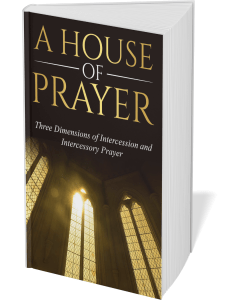In the Kingdom of God, administration is not about bureaucracy or politics—it is about divine order, stewardship, and the wise management of heaven’s resources on earth. Kingdom administration refers to the structure, governance, and alignment of God’s people under His sovereign rule. It is the practical outworking of the prayer Jesus taught: “Thy Kingdom come, Thy will be done on earth as it is in heaven.”
Kingdom of God Administration Explained
Every kingdom must be properly governed to reflect the nature and intention of its King. Just as earthly administrations ensure order and service to their citizens, the Kingdom of God operates by divine principles that promote righteousness, peace, and joy in the Holy Spirit. In this vlog, Travis Ripley unpacks what Kingdom administration truly means—how believers are called not merely to belong to the Kingdom, but to participate in its management under Christ the King.
1. Kingdom of God Leadership and Divine Authority
In every kingdom, leadership flows from the throne. The King sets the vision, direction, and values of the realm. In God’s Kingdom, Jesus Christ is the supreme Head—our eternal Monarch—while spiritual leaders serve as delegated stewards of His will. Kingdom administration, therefore, begins with submission to divine authority. It’s not about personal power or human control but about aligning with Heaven’s purpose and ensuring that leadership models the humility, justice, and wisdom of Christ.
2. The Structure of Governance
Kingdom administration involves spiritual order within the Body of Christ. Just as a natural kingdom has ministries, departments, and roles, so does God’s Kingdom function through diverse callings—apostles, prophets, pastors, teachers, and evangelists—all working together for the equipping of the saints (Ephesians 4:11-12). When each part operates in harmony, the Kingdom advances with strength and clarity. This divine structure prevents chaos and ensures that every aspect of God’s plan is administered with excellence.
3. Kingdom Administration Policy and Principles
Every kingdom operates on laws and policies that express the will of the King. In the Kingdom of God, these are the principles of Scripture. Kingdom policy emphasizes love, justice, mercy, and righteousness. The Word of God serves as both the constitution and legal framework by which every believer lives. When Kingdom citizens obey these divine statutes, society begins to reflect Heaven’s order—families are restored, communities strengthened, and nations transformed.
4. Kingdom of God Law, Order, and Righteousness
Maintaining spiritual law and order is essential for the Kingdom’s integrity. God’s Word acts as the judicial standard—correcting, instructing, and protecting His people. Spiritual administrators, much like judges or law-keepers, must uphold truth and discipline with compassion. True Kingdom order brings peace, not oppression; clarity, not confusion. As Travis Ripley teaches, righteousness is the foundation of all divine governance—without it, no administration can stand.
5. Public Service and Stewardship
Just as earthly governments provide services for their people, the Kingdom of God calls believers to serve. Ministry itself is public service—feeding the hungry, healing the sick, teaching the Word, and caring for the poor. This is Kingdom welfare in its truest sense. Every act of service reveals the heart of the King and extends His goodness throughout the land. In God’s administration, service is not a task—it is worship.
6. Finances and Kingdom Economics
A vital part of any administration is finance. In the Kingdom of God, economics operates on principles of generosity, stewardship, and faith. Giving, tithing, and sowing into the work of the Kingdom enable its expansion and sustainability. God’s administrators are not owners but stewards of divine resources, managing them wisely for eternal impact. When finances are handled with integrity, Heaven entrusts more.
7. Global Relations and Unity
Kingdom administration also involves how believers relate beyond their borders. The Church is called to be an ambassadorial body—representing Heaven on earth and fostering peace among nations. Unity among believers strengthens this witness, demonstrating that God’s Kingdom transcends race, language, and geography.
8. Communication and Accountability
Finally, communication and transparency are vital in Kingdom administration. God values order, honesty, and clarity. In every ministry and household, information must flow truthfully so that the whole Body functions as one. When communication is open and accountable, the Kingdom remains healthy and unified under its King.
Kingdom administration, as Travis Ripley reveals, is the divine system that sustains Heaven’s government on earth. It requires wise leaders, faithful stewards, and a people committed to righteousness. Each believer has a role to play in this grand design—to bring the order of God’s Kingdom into every sphere of life.




